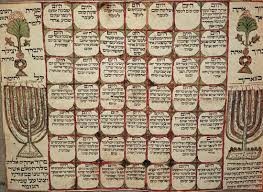Before today’s Gregorian calendar was adopted, the older Julian calendar was used. It was admirably close to the actual length of the year, as it turns out, but the Julian calendar was not so perfect that it didn’t slowly shift off track over the following centuries. Until 1582, by which time Caesar’s calendar had drifted a full 10 days off course, that Pope Gregory XIII (1502 – 1585) finally reformed the Julian calendar. And, do you know that the calendar, as we know it today, was not adopted uniformly across Europe until well into the 18th century. The New Year started on 1 January in 1600.
While for some New Year’s Eve is just another day, for some it is a day filled with fun and frolic. And, for many it is a day of mixed feelings. On one hand, it is a time to  celebrate the end of the year gone by; for some it may be a good year and for some it may not be so, for some it may be a mixture of some good and some bad events. The fact is we can’t hold back the year, it has to pass and we need to welcome what is in store in the New Year. Some people experience a sense of nostalgia as they reflect on the events that took place in their lives in the past 12 months. While many people start thinking about New Year’s resolutions at this time of the year.
celebrate the end of the year gone by; for some it may be a good year and for some it may not be so, for some it may be a mixture of some good and some bad events. The fact is we can’t hold back the year, it has to pass and we need to welcome what is in store in the New Year. Some people experience a sense of nostalgia as they reflect on the events that took place in their lives in the past 12 months. While many people start thinking about New Year’s resolutions at this time of the year.
Some religions in the world celebrate New Year twice: on 1st January and their own religious New Year’s Day. In Vietnam the New Year usually begins in February. In India, each of the religious groups has its own date for the beginning of the year. For most religions in India the New Year comes in April. Iran celebrates New Year’s Day on March 21. The people in Morocco observe the beginning of the year on the tenth day of Muharram, the first month of the Islamic year. The Russian Orthodox Church observes the New Year according to the Julian calendar, which places the day on January 14. And, in Indonesia they have two New Year celebrations — the official one on January 1 and another on the Islamic New Year, which date varies from year to year as per lunar calendar.
 Most Christians in the world celebrate New Year’s Eve by attending midnight church services, while others gather around in public venues such as Times Square in New York City, or Trafalgar Square in London to count down for the closing seconds of the old year. A lot of people hold parties to farewell the parting year and to celebrate the New-coming Year. Some people like to celebrate New Year in far off destinations; you’ll be surprised I know of people who love to celebrate New Year with unknown people in hotels and restaurants. The size and styles of festive events for New Year’s Eve can diverge in size and theme. Some people attend formal masquerade balls while others have costume parties. Some people prefer to have small parties or gatherings at their homes. Many New Year’s Eve celebrations are highlighted by firework display.
Most Christians in the world celebrate New Year’s Eve by attending midnight church services, while others gather around in public venues such as Times Square in New York City, or Trafalgar Square in London to count down for the closing seconds of the old year. A lot of people hold parties to farewell the parting year and to celebrate the New-coming Year. Some people like to celebrate New Year in far off destinations; you’ll be surprised I know of people who love to celebrate New Year with unknown people in hotels and restaurants. The size and styles of festive events for New Year’s Eve can diverge in size and theme. Some people attend formal masquerade balls while others have costume parties. Some people prefer to have small parties or gatherings at their homes. Many New Year’s Eve celebrations are highlighted by firework display.
Many people like to watch television entertainment shows. Many people bid good bye to the parting year by hugging and kissing and wishing each other “Happy New Year.” In the United States, many people sing the Scottish song “Auld Lang Syne” during the New Year’s Eve celebrations. The New Year signifies that the time has arrived to bid farewell to the by-gone year and to welcome the New Year and if anything changes constantly in life, it is only time which changes constantly. You can’t hold on to good or bad time. With the growth of the western culture across the globe, New Year’s Day on January 1 in the Gregorian calendar has been celebrated all over the globe.
The age-old tradition of planning new resolutions for the coming year is a common sight. A few of the most popular resolutions include losing weight, developing good habits, working hard, getting married (if single), changing job or getting a job, starting new venture, developing a hobby, higher education etc are some common resolutions.
The fact of life is a year comes and stays as guest for 365 or 366 days; it behaves like a good guest and sometimes does not behave well. But, it stays on only for 365 or 366 days with us and therefore we say a good bye to it. We say ‘bye’ to the old guest and welcome the new guest. And scientifically what is a year? It is the orbital period of the earth moving in its orbit around the sun.
Here is Wishing you all A Happy and Prosperous New Year!!











































